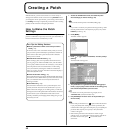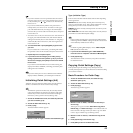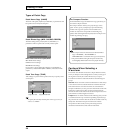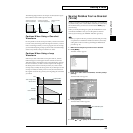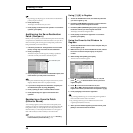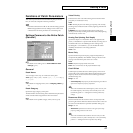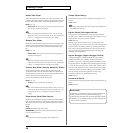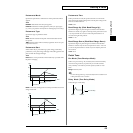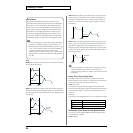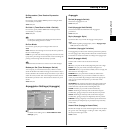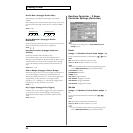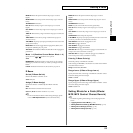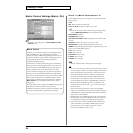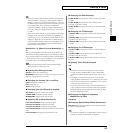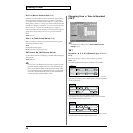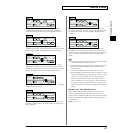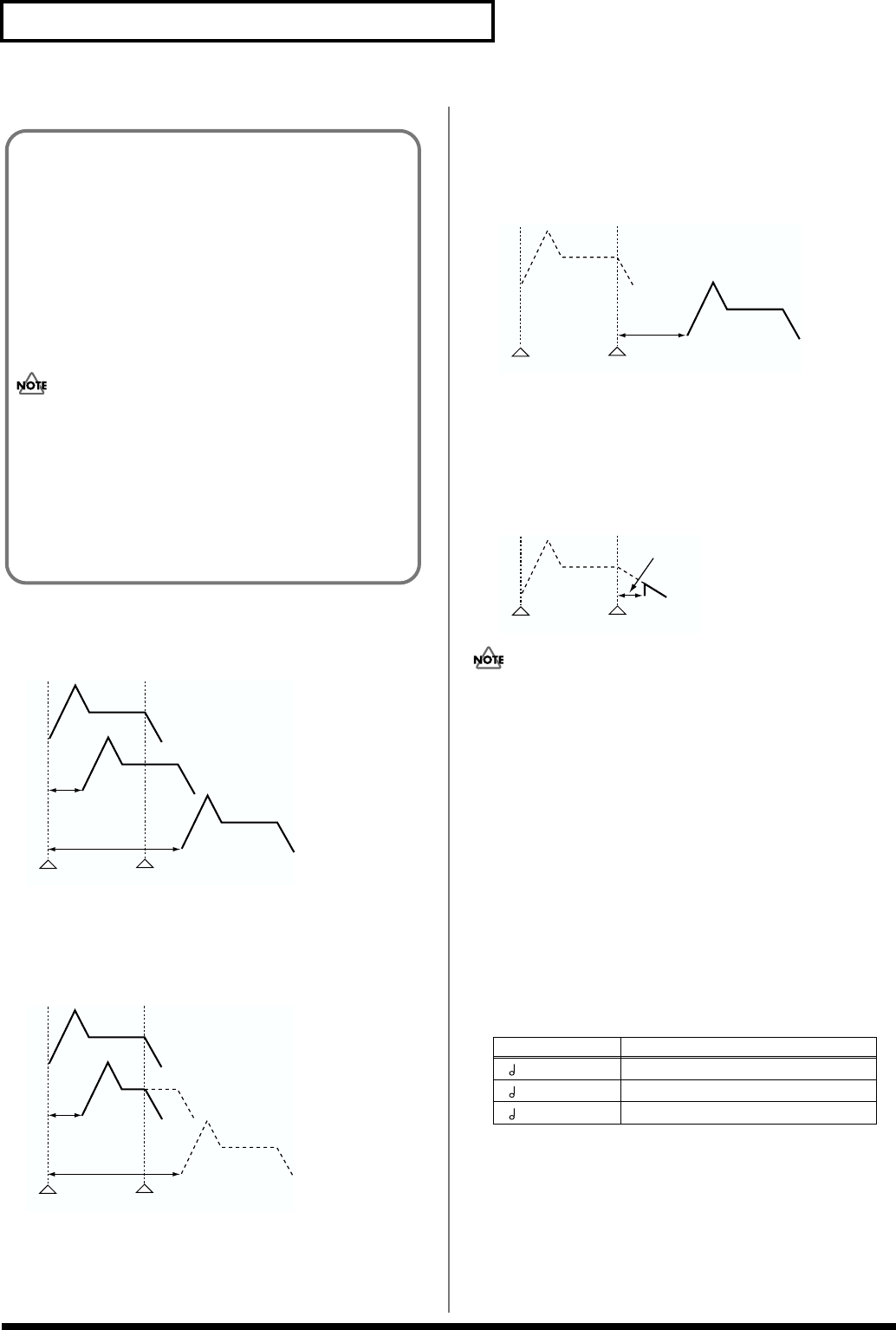
50
Creating a Patch
Value
NORM: The tone begins to play after the time specified in the Delay
Time parameter has elapsed.
fig.NORM.e
HOLD: Although the tone begins to play after the time specified in
the Delay Time parameter has elapsed, if the key is released before
the time specified in the Delay Time parameter has elapsed, the tone
is not played.
fig.HOLD.e
OFF-N: Rather than being played while the key is pressed, the tone
begins to play once the period of time specified in the Delay Time
parameter has elapsed after release of the key. This is effective in
situations such as when simulating noises from guitars and other
instruments.
fig.OFF-N.e
OFF-D: Rather than being played while the key is pressed, the tone
begins to play once the period of time specified in the Delay Time
parameter has elapsed after release of the key. Here, however,
changes in the TVA Envelope begin while the key is pressed, which
in many cases means that only the sound from the release portion of
the envelope is heard.
fig.OFF-D.e
If you have selected a waveform that is a decay-type sound (i.e.,
a sound that fades away naturally even if the key is not
released), selecting “OFF-N” or “OFF-D” may result in no sound
being heard.
Delay Time (Tone Delay Time)
Specifies the time from when the key is pressed (or if the Delay
Mode parameter is set to “OFF-N” or “OFF-D,” the time from when
the key is released) until when the tone will sound.
Value: 0–127, Note
Tone Delay Time specifies the beat length for the synchronized
tempo when the tempo that specifies the elapsed time until the tone
is sounded (Patch Tempo) is synchronized with the tempo set in a
sequencer.
(Example)
For a tempo of 120 (120 quarter notes occur in 1 minute (60 seconds))
Rx Bender (Tone Receive Pitch Bend Switch)
For each tone, specify whether MIDI Pitch Bend messages will be
received (ON), or not (OFF).
Value: OFF, ON
Tone Delay
This produces a time delay between the moment a key is
pressed (or released), and the moment the tone actually begins
to sound. You can also make settings that shift the timing at
which each tone is sounded. This differs from the Delay in the
internal effects, in that by changing the sound qualities of the
delayed tones and changing the pitch for each tone, you can
also perform arpeggio-like passages just by pressing one key.
You can also synchronize the tone delay time to the specified
tempo (Patch Tempo), or to the tempo of the sequencer (p. 48).
• If you are not going to use Tone Delay, set the Delay Mode
parameter to “NORM” and Delay Time parameter to “0.”
• If the Structure parameter (PATCH/TMT) is set in the range
of “2”–”10,” the output of tones 1 and 2 will be combined
into tone 2, and the output of tones 3 and 4 will be
combined into tone 4. For this reason, tone 1 will follow the
settings of tone 2, and tone 3 will follow the settings of tone
4 (p. 56).
Note off
Delay time
Note on
Note off
Delay time
Note on
No sound
played
Setting Delay time
(half note)
1 second (60 / 60 =1 (second))
(quarter note)
0.5 seconds (60 / 120= 0.5 (seconds))
(eighth note)
0.25 seconds (60 / 240= 0.25 (seconds))
Note off
Delay time
Note on
Note off
Delay time
Note on



